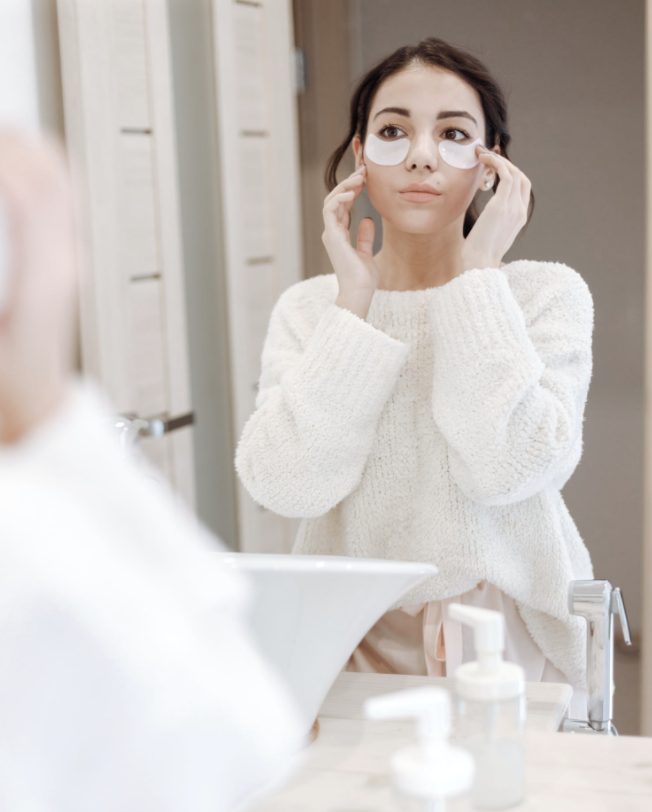If you’ve ever had acne, you know how frustrating it can be to not understand the root cause of it. Going to dermatologists and restricting your diet can take a toll on you, not to mention dealing with the psychological effects of constantly having breakouts. One of the things we all hear a lot is that one should stay away from dairy but how much truth is there in that statement? We got dermatologist, Dr Stuti Khare Shukla to differentiate between facts and myths about the correlation between dairy and acne.
What role does dairy play in your health?

“Just like every other food dairy also has its pros and cons. Milk is essential for bone health due to its high calcium content. It has antioxidants and also helps in low blood pressure issues. People also underestimate the role of gut health which is an integral part of our body and some fermented dairy products like yogurt contain probiotics that provide numerous health benefits and help in maintaining the natural body balance. Although it does more good than harm we should not ignore its bad effects if consumed in the wrong way like obesity. Surprisingly, it can even cause cancer because of the chemicals that are added nowadays and that’s why we should always try and get as pure a form of dairy as possible,” says Dr Khare Shukla.
How does dairy affect the skin?
According to the expert, dairy has a vitamin called retinol which is good for skin glow and it also has anti-ageing abilities.
On the other hand, milk also has proteins like whey and casein that add to the rise in blood’s insulin and IGF-1, a growth hormone level respectively and because of these, an oily substance called sebum is produced in large amounts that can trigger acne or even make skin oilier than normal.
What is the correlation between dairy and acne?
People suffering from acne can take a breather because Dr Stuti informs us that there’s actually no substantial evidence to establish a direct connection between dairy and acne. Some studies suggest that people who drink milk or consume dairy products are more likely to get breakouts than non-drinkers.
However, as mentioned earlier it does contain certain compounds which can aggravate acne. So indirectly it may increase the risk of acne development.
Should you completely leave dairy if you suffer from acne?
“Since milk is considered a superfood it won’t be a good choice to leave out dairy completely from your diet. You need calcium for your bone strength, proteins for growth, vitamins for overall growth but if someone is suffering
from acne, they must look out for different kinds of dairy resources and with different percentages of fat content and similar nutritious value in them and which suits our body best,” explains the dermatologist.

What is the connection between dairy and inflammation in the body?
Dr Khare says that milk that is high in fat may not necessarily cause inflammation but it can give way to molecules of lipopolysaccharides which add to inflammation if it is already there.
How will you know if dairy is negatively affecting your skin and health?
“High-fat dairy can cause an increase in body fat and turn into obesity which is bad for almost every body part. If you are lactose intolerant you’ll not be able to break down regular milk’s proteins and can cause indigestion. Trying to cut out dairy from your diet and check how your body and skin react to it is the best way to find out if a certain type of dairy is for you or not,” she elaborates.
Any specific type of dairy that can be consumed?
Dr Stuti believes that it should be consumed in moderation and that it is wise to consume low-fat or skim
milk as it has high saturated fats. If you feel you are developing an intolerance to milk, you can always switch to non-dairy milk alternatives like fortified soy milk and yoghurt which have calcium, vitamin A, and vitamin D as their nutrition content is similar to dairy milk and yoghurt. And if you want a complete non-dairy diet they can opt for fish tofu and tahini to meet the body’s calcium requirements.
Another thing to keep in mind is that women with PCOS and PCOD issues often have difficulty consuming dairy on a daily basis which is true because in such cases dairy products or specifically Lactose can cause hormonal disturbance and later lead to acne triggers, hair fall, and even weight gain. So, it’s better to avoid dairy if you have these issues.
Just remember, acne is a hormonal issue and visiting a dermatologist to answer all your questions is the best way to tackle the situation.
Featured Image: Pexels



